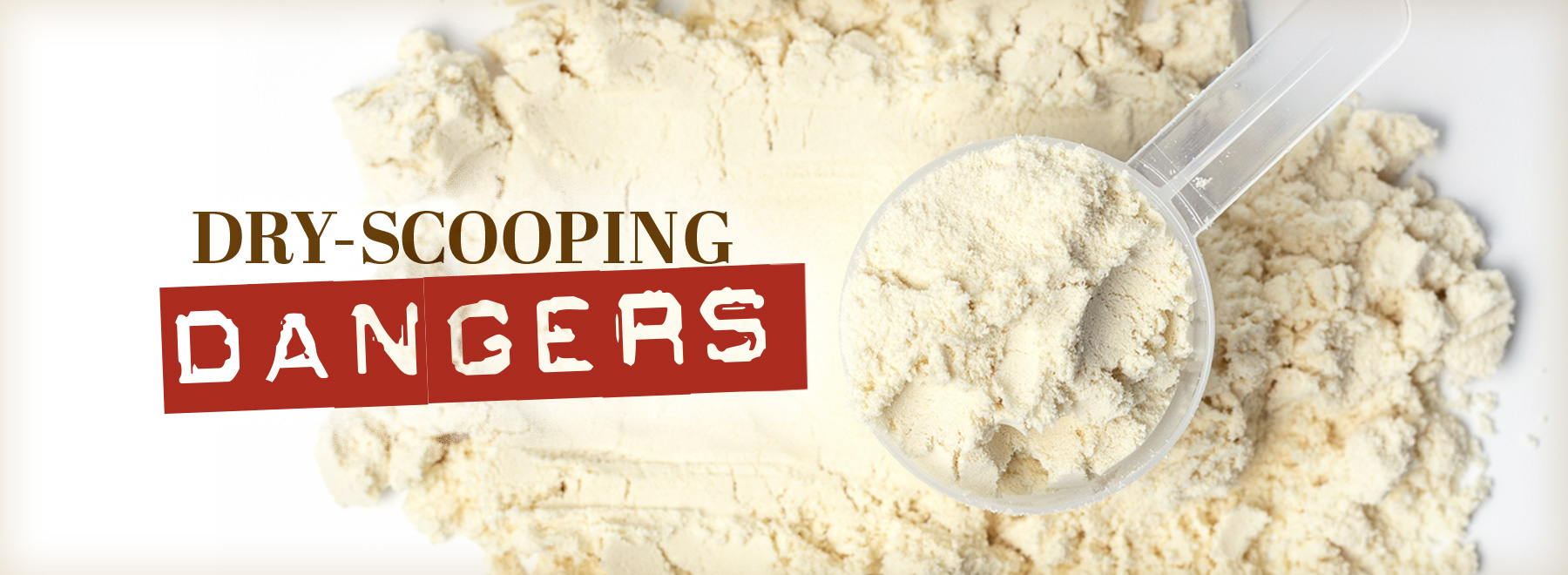Latest Internet workout fad could have serious health consequences
Despite its name, a new fitness trend plugged on social media is all wet, say experts at the University of Mississippi Medical Center.
Called “dry-scooping,” it can be dangerous for the heart and lungs, no matter your age.
Particularly conspicuous on TikTok, a video sharing app popular with teens and young people, dry-scooping has its acolytes swallowing a scoop of a pre-workout energy powder – without first diluting it with water, an omission that defies label directions and, perhaps, common sense.
The idea is to shove the powder’s performance-enhancing ingredients, such as caffeine, into the bloodstream faster for a super charge of energy and a better workout.

“The term ‘dry-scooping’ is new, but the effects of the workout supplements are not new at all,” said Dr. Michael Hall, associate professor of medicine in the Division of Cardiology, and associate vice chair for research in the Department of Medicine at UMMC.
“A common question I ask young people who have had a cardiac event such as arrhythmia is, “Have you taken any workout supplement or weight loss drugs?’ Both have stimulants that affect the heart.
“Although cardiac events are pretty rare in young people, it’s not uncommon for those who are into fitness and taking workout supplements to have palpitations or minor arrhythmias while taking stimulant supplements.
“Recently, I saw two patients, young people who had arrhythmia or premature ventricle contractions. Nothing major, in their case, but these events were apparently triggered after they took some sort of pre-workout supplement.
“Dry-scooping is getting attention because you have a young woman in the news who, apparently, had a cardiac event after swallowing dry powder.”

Often convinced of their own invincibility, young people may be more prone to taking such shortcuts, said Dr. Kelly Wingerter, assistant professor of medicine in the Division of Cardiology at UMMC.
“They will do one thing when the directions say another, thinking they are invulnerable and nothing bad will come from it.
“But what’s happening sometimes is that, when the ingredients get into the bloodstream faster, this causes an increase in blood pressure and heart rate, putting added stress on the heart; this could lead to a heart attack.”
Pre-workout powder ingredients may include amino acids and other substances, but the most worrying of all, Hall and Wingerter say, is caffeine.
“If you drink two cups of coffee a day, you’re getting about 200 milligrams of caffeine,” Wingerter said. “But with pre-workout powders, it could be as much as 500 milligrams – all at once. And that could be dangerous for the heart.”
Symptoms of a heart attack can include pain, a tingly feeling or weakness or limpness in the limbs, and a heavy feeling in the chest.
“No paper has been written about this by a physician or scientist, but from the cases I’ve read about, people have reported a feeling of pressure on the chest which becomes pretty significant,” Wingerter said. “It can happen during exercise or immediately after stopping.”
If that happens to you, call 911, Wingerter said, “and get evaluated in the emergency room.”
People should realize, Hall said, that pre-workout powders and other supplements are not regulated as drugs by the Food and Drug Administration. “You’re not really sure what’s in them, or how much they contain of any ingredient.
“It’s the same for people who take over-the-counter supplements to lose weight. These substances are not in the same league as illicit drugs, such as cocaine, but they do stimulate the heart.”
Medications are monitored by the FDA, Wingerter said. They are tested. “So we know what all of the ingredients are. We know what the potential adverse effects are, because they are listed on the label.
“But with supplements and pre-workout powders and so forth, the rules aren’t the same. There is no black box warning.
“Similar supplements could each have a different amount of certain ingredients; some have more caffeine than others. We are not 100 percent sure that everything in them is listed.”
This is especially worrisome for people who have undiagnosed heart problems, Wingerter said. “People with conditions such as coronary heart disease or congenital heart disease – and don’t even know it – are definitely at higher risk for complications when the heart rate is increased too fast.”
Besides potential dangers to the heart, Hall is even more concerned with what dry-scooping can do to the lungs.
“It’s really analogous to the cinnamon challenge,” Hall said. “Whether it’s cinnamon, powdered sugar or pre-workout powder, it’s not meant to be ingested that quickly. It can be inhaled into the lungs.”
That could mean a nasty infection, Wingerter said. “You could end up with pneumonia and breathing complications.”
Of course, dry-scooping is not the only potentially risky fitness, sports or exercise routine in vogue.
“A paper published a few years ago describes how sports drinks are also associated with cardiac arrhythmia because they’re high in sugar and caffeine,” Hall said.
For more energy or less weight, some people take thyroid-based supplements, he said. “A thyroid hormone is a stimulant, and too much of any stimulant can be harmful. Even with caffeine, some people are more susceptible to possible harmful effects at high doses than others.”
But dry-scooping is one of the newest trends, and it was endorsed, not by physicians or scientists, but by influencers on social media.
“I would highly encourage people to not turn to social media for advice on fitness,” Hall said. “Although, common sense is probably going to tell you there’s not a major added benefit to scooping powder.
“I do encourage anyone, before you start taking any supplement like that, to consult your health care provider first, especially if you have any questions about whether it’s safe for the heart, and especially if you are predisposed to a heart condition.”
For her patients who are being lured by the latest diet or exercise trend, Wingerter asks them to let her investigate it first.
“It may not be properly studied,” she said. “Let me do some research, then come back and let’s talk about it. It may be more detrimental than beneficial.”
The above article appears in CONSULT, UMMC’s monthly e-newsletter sharing news about cutting-edge clinical and health science education advances and innovative biomedical research at the Medical Center and giving you tips and suggestions on how you and the people you love can live a healthier life. Click here and enter your email address to receive CONSULT free of charge. You may cancel at any time.



